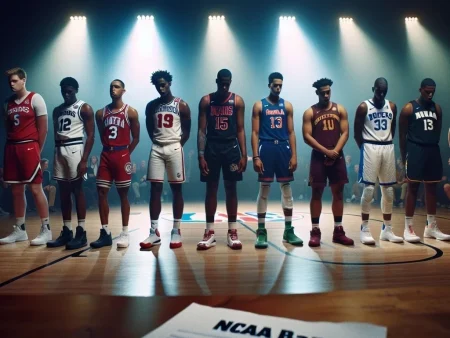Explore the dynamic world of sports betting in Florida, where legal challenges, tribal sovereignty, and court cases shape the future of gambling laws.
Sports Betting in Florida: Legal Challenges and Future Prospects
Wellcome Offer:
200% up to $2,000
+ 100 Free Spins
The winnings from your free spins will be credited as bonus funds. Exclusively available for new players with fair wagering requirements.
Wellcome Offer:
250% Bonus up to $5,000
+ 100 Free Spins
Claim your bonus and spin your way to big wins! Minimum deposit of $20 required. Wagering requirements apply. Bonus valid for 30 days.
Get up to:
100% up to $1,000
+ 300 Free Spins
You need to deposit at least $25 to be eligible for this bonus. The maximum amount of money you can withdraw from this bonus is limited to $20,000 or 10-times.
Welcome Package:
500% up to $5,000
+ 250% on your 2nd and 3rd deposits
This welcome package rewards new players across their first three deposits. A minimum deposit of $25 applies, with a wagering requirement of 60x before withdrawals.
Wellcome Offer:
250% up to $1,500
+ 100 free spins
Whether you prefer generous deposit bonuses or a bundle of free spins, Cafe Casino’s welcome offer has everything you need to enhance your gaming adventure.
Wellcome Offer:
500% bonus up to $7,500
+ 150 free spins
If you're after big deposit bonuses or a load of free spins, Ducky Luck Casino’s welcome package sets the stage for an exciting gaming adventure.
Welcome Offer:
200% up to $2,000
+ 100 Free Spins
This welcome package combines a deposit match with free spins, giving new players a powerful way to kick off their VoltageBet journey.
Wellcome Offer:
200% up to $1,000
+ 30 free spins
Lovers of slot games and those looking to boost their deposit will find Slots LV Casino’s welcome offer the perfect way to jumpstart their gaming journey.
Wellcome Offer:
200% up to $500
+ Free Spins
Terms typically include standard wagering requirements and a limited validity period. Offers vary by deposit method and player eligibility.
Wellcome Offer:
250% up to $1,500
+ 50 Free Spins
All winnings from free spins are credited as bonus funds, with fair wagering requirements. Exclusive to new players.

The landscape of sports betting in Florida is a complex and evolving issue, marked by significant legal challenges and debates over gambling laws․ As the state government seeks to expand and regulate this lucrative market, several key factors including court cases, the role of the Seminole Tribe, and the implications of tribal sovereignty play pivotal roles․
The Path to Legalization
Initially, the push for legalized sports betting gained momentum through negotiations between the state government and the Seminole Tribe, resulting in a new gaming compact․ This agreement aimed to allow the tribe exclusive rights to operate both in-person and online betting platforms, thus expanding gambling operations within Florida․
Regulatory Issues and the Gaming Compact
The gaming compact, however, faced numerous regulatory issues․ Critics argued that the compact’s provision for online sports betting, extending beyond tribal lands, violated state and federal laws․ This led to a series of court cases challenging the legality of the compact․
Legal Challenges and Court Cases
A pivotal federal court ruling in 2021 invalidated the compact, citing that it breached the Indian Gaming Regulatory Act by allowing bets to be placed outside of tribal lands․ This decision underscored the complexities of balancing tribal sovereignty with state and federal gambling laws․
The Role of the Seminole Tribe
The Seminole Tribe plays a central role in the legalization process due to their established gaming operations and rights under federal law․ Their involvement is crucial, as any changes to gambling laws often require renegotiation of existing compacts and consideration of tribal rights․
Constitutional Amendments and Voter Approval
Another layer of complexity is Florida’s requirement for a constitutional amendment to expand gambling, necessitating voter approval․ This adds another hurdle as proponents of sports betting must convince the electorate of its benefits amid concerns over social impacts and market monopolization․
Future Prospects and Betting Platforms
Despite legal setbacks, the demand for sports betting in Florida remains high, prompting ongoing discussions about potential pathways to legalization․ The development of regulated betting platforms that comply with both state and federal laws is seen as a possible solution, although this too requires careful negotiation and agreement among stakeholders․
As Florida navigates these challenges, the outcome will significantly influence not only the state’s economic landscape but also set precedents for gambling law interpretations in other jurisdictions․

























